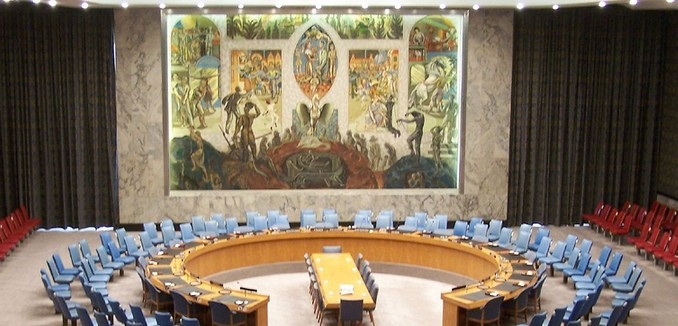The passage of a one-sided anti-Israel resolution at the United Nations Security Council, as is anticipated to occur today, would mark a significant departure from an international consensus governing peace talks between Israel and the Palestinians.
The resolution states that the Security Council “reaffirms that the establishment by Israel of settlements in the Palestinian territory occupied since 1967, including East Jerusalem, has no legal validity and constitutes a flagrant violation under international law.” Egypt introduced it on Thursday before withdrawing it hours later; the following day, Venezuela, Senegal and New Zealand asked that the resolution be voted on.
If the resolution passes, it will signal that the international community has abandoned one of the most important underpinnings of the Israeli-Palestinian peace talks: the idea that peace can only come through direct negotiations.
This has been a premise of negotiations since the 1990s. Then-PLO Chairman Yasser Arafat committed to this concept in his exchange of letters with then-Israeli Prime Minister Yitchak Rabin. “The PLO commits itself to the Middle East peace process, and to a peaceful resolution of the conflict between the two sides and declares that all outstanding issues relating to permanent status will be resolved through negotiations,” Arafat wrote in 1993. And the 1995 interim agreement between Israel and the PLO, commonly called “Oslo II,” stipulated that the disposition of settlements is a “final status” issue to be resolved through negotiations.
Passage of the Security Council resolution will mean that the United Nations has rewarded Mahmoud Abbas, the increasingly authoritarian president of the Palestinian Authority, for his refusal to negotiate with Israel and his internationalization of the conflict. Abbas admitted that his plan was to expand legal warfare against Israel in a 2011 New York Times op-ed. “Palestine’s admission to the United Nations would pave the way for the internationalization of the conflict as a legal matter, not only a political one,” he explained. “It would also pave the way for us to pursue claims against Israel at the United Nations, human rights treaty bodies and the International Court of Justice.”
Abbas has twice undermined American efforts to promote peace talks during the past eight years. The resolution’s success would reward Abbas’s premeditated refusal to negotiate in good faith with Israel, all the while increasing his own power through corruption and oppression of his citizens while failing to build the necessary institutions for statehood. Grant Rumley, an expert on Palestinian politics at the Foundation for Defense of Democracies, warned in May that the West’s refusal to challenge Abbas’s autocratic kleptocracy “could have a devastating effect on the long-term prospects for a viable Palestinian state.” The passage of this resolution would have the same effect.
[Photo: Official White House photo by Pete Souza / WikiCommons ]




